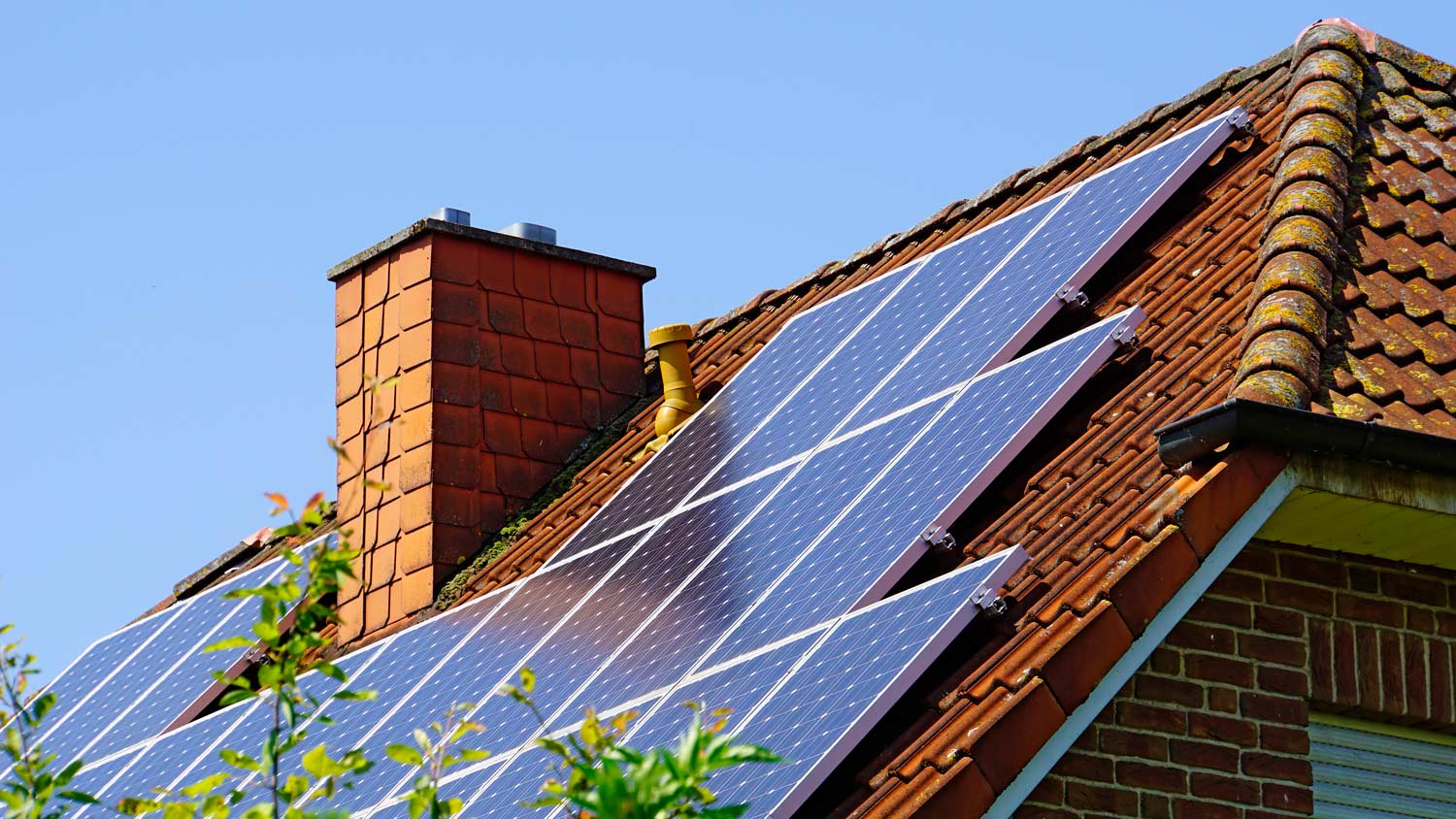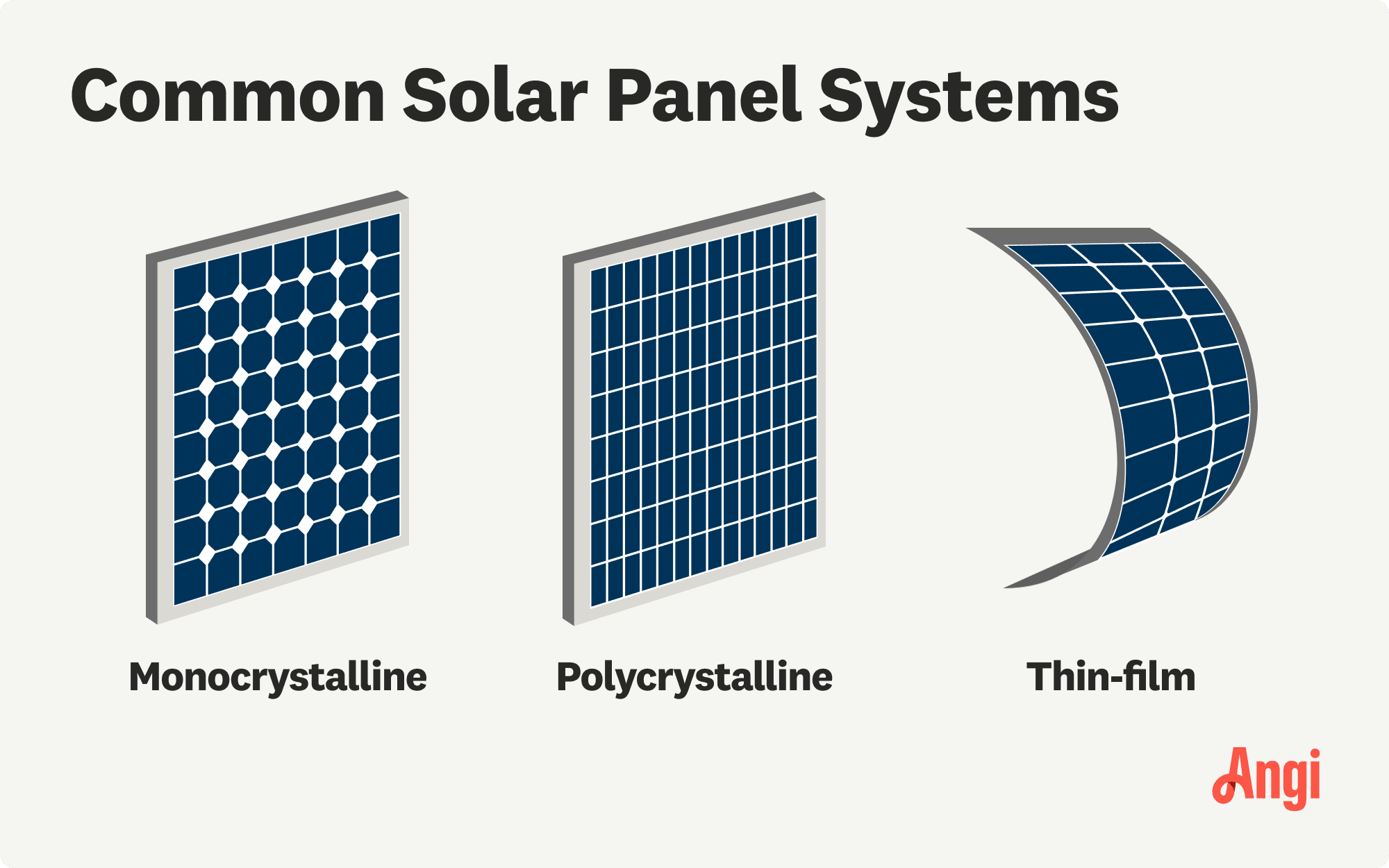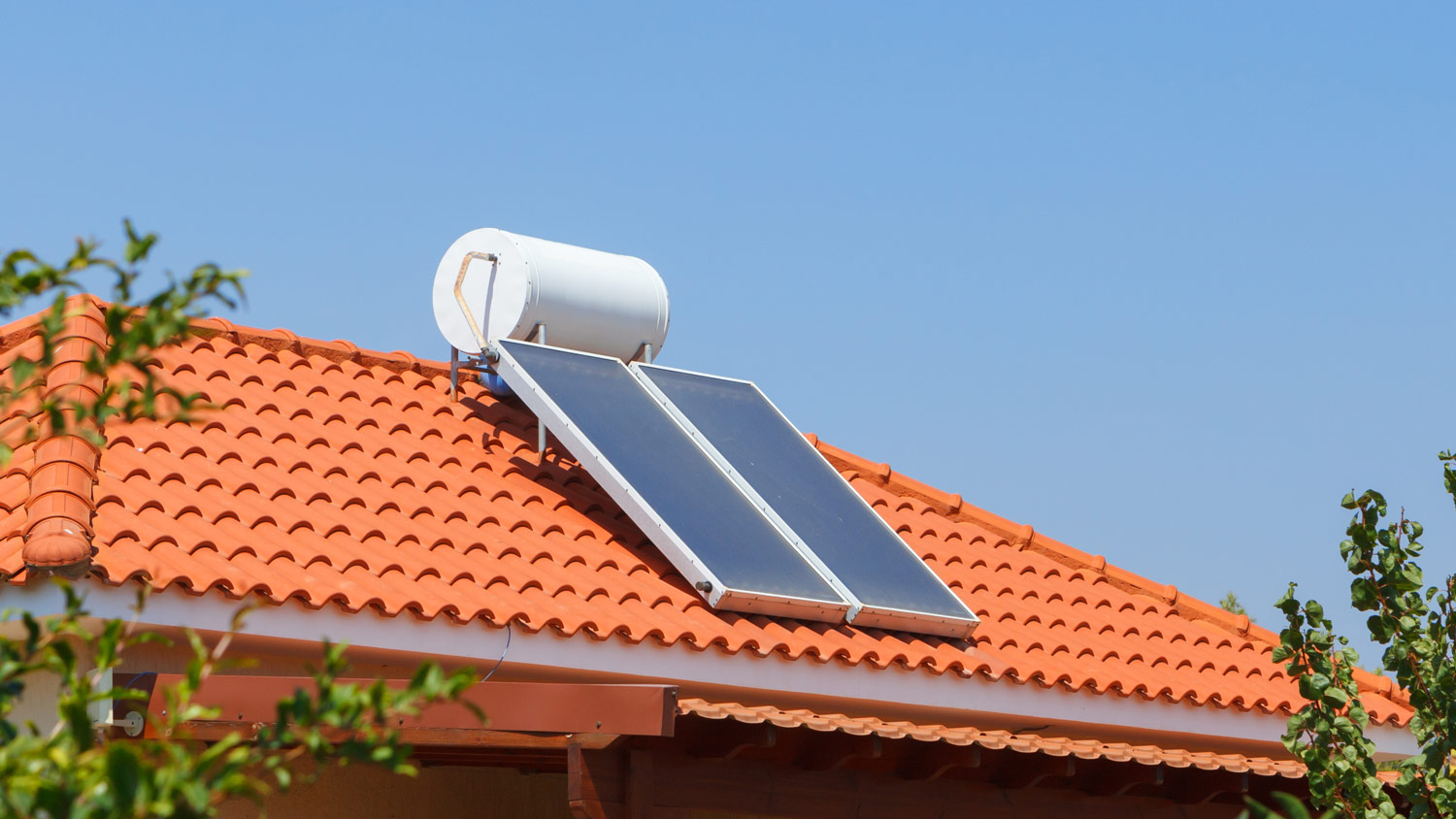
Solar battery costs depend on the size of your system, labor, and capacity. Learn how much you could pay for batteries for home solar systems.
Installing solar panels in Philadelphia, Pennsylvania, averages $32,417, though it ranges between $22,965 and $43,269 based on system size, panel type, wattage, and more. A solar panel installer can assess your roof and install your system.


Philadelphia has a booming solar market with per-watt costs that are higher than the national average.
Solar incentives in Philadelphia include Solar Renewable Energy Certificates (SRECs) and a statewide net metering program.
Solar panel installation permits are streamlined in Philadelphia thanks to the city’s EZ permit process.
In the City of Brotherly Love, more homeowners are making the switch to solar. Solar panel installation costs in Philadelphia, Pennsylvania, range from $22,965 to $43,269, with an average of $32,417. A combination of solar incentives and Pennsylvania’s solar market conditions can make this a smart home improvement project. Let’s shine a light on what influences your solar investment so your roof can harness electricity from the sky.
Understanding the cost factors of transitioning to solar, from the size and number of panels to the hardware you choose, will help you build a rough budget.
The size of the solar system will impact your solar panel installation costs. The larger the output, the more you’ll pay. Most homes need 6- to 10-kW (kilowatt) systems, which work out to anywhere from 15 to 34 panels, depending on the wattage.
The table below shows average costs based on the size of your solar system:
| System Size (kW) | Number of Solar Panels | Average Cost |
|---|---|---|
| 4 | 10–12 | $12,640–$15,680 |
| 6 | 15–18 | $18,960–$23,520 |
| 8 | 20–24 | $25,280–$31,360 |
| 10 | 25–30 | $31,600–$39,200 |

When choosing the type of solar panel that works best for your home, consider three main factors: efficiency, life expectancy, and design. Here’s how the type of solar panel can affect your cost:
| Type of Solar Panel | Average Cost per Watt | Efficiency Rate (%) | Pros | Cons |
|---|---|---|---|---|
| Monocrystalline | $1.30–$1.60 | 18–22 | Very efficient in terms of space and production | Higher up-front cost |
| Polycrystalline | $0.95–$1.25 | 15–17 | Budget-friendly, solid performance | Less efficient, requires more space |
| Thin-Film | $0.80–$1.10 | 10–12 | Flexible installation, shade-tolerant | Requires the most roof space |
On average, most homes need anywhere from 20 to 25 panels to fully power a home, but this can range from as few as 15 to as many as 34. How many solar panels you need depends on the number of watts per panel, your energy consumption, and the efficiency of your panels. Your average solar panel will have an output of anywhere from 250 to 400 watts. The dimensions of your solar panels will also depend on the power output.
Philadelphia has brutally hot summers with heavy thunderstorms and harsh winters that pile up snow. This means you’ll want to invest in quality mounting hardware and components that can handle wind and snow loads.
The more advanced the technology, the higher the up-front cost. The type of mount will affect the cost as well:
Fixed mounts: $24–$34 per mount
Adjustable mounts: $85–$110 per mount
Standard roof mounts: $170–$340 per panel
Ground mounts: $550–$1,100 per panel
Tracking: $900–$4,400 or more per mount (these mounts can self-track sunlight, leading to up to 45% more energy production)
Ballasted systems: $220–$440 per panel
Other materials you will need for a solar energy system include the parts in the table below.
| Hardware | Average Cost |
|---|---|
| String inverter | $1,300–$3,800 each |
| Microinverters | $220–$440 each |
| Power optimizer | $110–$220 each |
| Solar battery | $9,000–$22,000 |
| Monitoring system | $340–$900 |
Inverter: Converts direct current (DC) electricity to alternating current (AC) electricity
Microinverters: Convert DC power to AC power at each panel instead of the whole string of panels
Optimizer: Regulates currents so each panel is more energy efficient and prevents power loss
Battery: Stores excess energy from the system so homeowners can use it at night or during a power outage
Some systems use a single solar inverter or several microinverters that convert DC to AC electricity. Materials like the wiring and battery are often grouped with the package price unless you opt for add-on services.
Between complex permitting requirements, electrical code compliance, and navigating row house logistics or tight neighborhoods, hiring a solar panel installer in Philadelphia is a must.
Budget $0.55 to $0.85 per watt for labor costs, not including permits or the cost of additional technology, such as special mounts, tiles, or shingles. A solar panel installer in Philadelphia, Pennsylvania, will be your best resource for accurate pricing.
Solar panel installation does require electrical work. Though many solar panel installation companies have a licensed electrician on staff who specializes in solar panels, roofing contractors sometimes subcontract an electrician. The average cost of hiring an electrician in Philadelphia costs about $80 to $160 per hour, with most installations requiring four to eight hours of electrical labor.
Depending on your area, you may need to get a building permit and a solar panel inspection before you can unveil your new solar panels. Permits and inspections will add about $250 to $900 to the solar panel costs.
Standard residential permits: $250–$550
Historic district approvals: $350–$1,200
Electrical permits: $175–$350
Net metering interconnection: $120–$300
Expect permits for standard installations to take three to five weeks, and budget eight to 12 weeks for additional approvals if you live in a historic property.
Homebuyers in Philadelphia’s diverse neighborhoods look for solar-equipped homes. Many recognize that solar offers immediate utility savings, predictable energy costs, and environmental upsides. The return on investment (ROI) of solar panels is about 35% at the national level.
For buyers and sellers in Philadelphia, solar panels are worth the investment. The combination of relatively high electricity rates and incentive programs makes solar particularly attractive to potential buyers. Sellers can benefit from lower energy prices while they live in their homes, increased interest from potential buyers, and higher listing prices when they sell.
Once your solar panels are paid off, they're officially your property. If you move, you can reinstall them on a new rooftop. Alternatively, they can increase the value of your home by 3% to 4% and attract more buyers. They can also give your property a competitive edge in a buyers’ market.
The best way to save money on the up-front costs of installing solar panels is to take advantage of the Solar Investment Tax Credit (ITC) before it ends on December 31, 2025. The ITC allows homeowners to claim a federal tax credit equal to 30% of the price of their solar panel system installation.
For example, if your solar panel system costs $30,000 before the federal tax credit, you can save around $9,000. However, to benefit from this credit, your solar system has to be installed and working before the federal incentive ends.
The ITC, also known as the Residential Clean Energy Credit, was originally extended through 2032 as part of the Inflation Reduction Act. However, new federal legislation (the Big Beautiful Bill Act) signed into law on July 4, 2025, terminated the credit early. The Solar Energy Industries Association® (SEIA) outlines the high-level policy changes and restrictions on energy tax credits.
Additionally, the extra power you choose not to store in a battery can be sent back to the grid. Your local utility company will compensate you for that power, but the amount will vary. You can check the Utility Rate Database on Open EI to estimate how much you can expect to receive for generating excess energy.
Like many large cities, Philadelphia offers several incentive programs for homeowners who go solar. SRECs and net metering credits are some of the top incentives.
Net metering credits earn full retail credit for excess energy that solar panels send to the grid, and credits never expire—plus, monthly reconciliation applies credits to future bills. Homeowners also benefit from being able to sell or hold SREC certificates for up to three years. Lastly, solar installations in Philadelphia don’t increase property taxes, and there’s no sales tax on solar equipment.
Home is the most important place on earth, which is why Angi has helped more than 150 million homeowners transform their houses into homes they adore. To help homeowners with their next project, Angi provides readers with the most accurate cost data and upholds strict editorial standards. We survey real Angi customers about their project costs to develop the pricing data you see, so you can make the best decisions for you and your home. We pair this data with research from reputable sources, including the U.S. Bureau of Labor Statistics, academic journals, market studies, and interviews with industry experts—all to ensure our prices reflect real-world projects.
Want to help us improve our cost data? Send us a recent project quote to [email protected]. Quotes and personal information will not be shared publicly.
From average costs to expert advice, get all the answers you need to get your job done.

Solar battery costs depend on the size of your system, labor, and capacity. Learn how much you could pay for batteries for home solar systems.

Get a clear estimate for solar water heater repair cost. Learn what impacts pricing and how to budget for your solar water heater repair.

There are a few factors to consider when it comes to solar panel repair costs. This guide breaks down the prices of solar panel removal, repair, and replacement.

Let’s dig into the debate between solar batteries versus generators to help you choose the best backup power solution.

Comparing solar quotes doesn’t have to feel like an overpriced guessing game. Find out how to properly compare your solar options here.

Ready to make the switch and join the solar panel homeowner community? Here are 15 key questions to ask solar companies before you seal the deal.